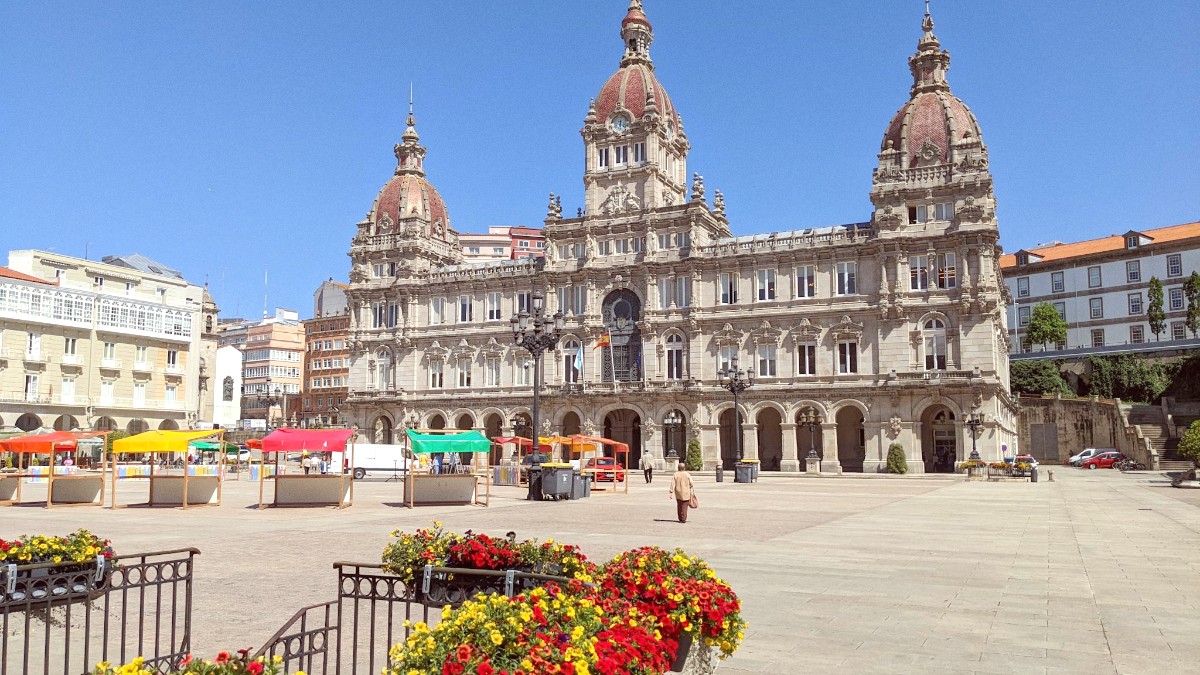
Cantabria Asturias And Galicia, Spain
Major Providers: Movistar, Vodafone, Orange, and MásMóvil serve as the main mobile providers in Spain. You can easily purchase prepaid SIM cards at official stores of the providers, phone shops, or some electronics retailers. Your passport is needed for registration.
Wi-Fi is widely available and often free in hotels, hostels, cafes, restaurants, and some public spaces (e.g., Plaza de María Pita). With a local SIM or eSIM, mobile data coverage is generally excellent throughout La Coruñan and most of Galicia. You can rely on your phone for internet access.
Official Languages: Spanish (Castilian) and Galician (Gallego) are both widely spoken. Galician is distinct from Spanish but shares many similarities, especially in vocabulary. English is spoken in hotels and major tourist attractions, but less common in smaller shops, local eateries, or outside the main tourist areas. Learning a few basic Spanish phrases proves beneficial.
Learning a few basic Spanish phrases greatly aids communication and shows respect.
A small effort to speak Spanish or Galician goes a long way. Locals appreciate the effort, even if you only know a few words.
Generally 10:00-14:00 and 17:00-20:30/21:00 (due to siesta, though less common for large chain stores in city centers). Large shopping centers operate continuously from 10:00-22:00. Most shops close on Sundays, except for some specific areas or large malls.
Lunch service runs from 13:30/14:00-16:00. Dinner service begins at 20:00/20:30-23:00/midnight. Many kitchens close between lunch and dinner service. Bars/Cafes open earlier for breakfast (08:00-09:00), some stay open late into the night.
Banks: Generally 08:30/09:00 to 14:00/14:30 on weekdays. Many close on weekends. ATMs (Cajeros Automáticos) are widely available 24/7. Museums/Attractions: Typically 10:00-18:00 or 19:00, often closed on Mondays. Check individual websites for specific times, as these vary seasonally.
Spain observes national, regional (Galicia), and local (La Coruña) holidays. On public holidays, banks, government offices, and many shops close. Public transport may operate on a reduced schedule.
Some smaller, family-run businesses may close for a week or two during summer (mid-August) for holidays. Attractions may also have reduced hours in the low season (winter).
Adapt to the Spanish schedule, especially for meals, to experience local culture fully. Plan museum visits on weekdays to avoid weekend crowds.
Interacting respectfully with local culture enriches your travel experience.
Formal: A handshake is common for introductions. Informal: Two kisses on the cheek (starting with the right) are common between women, and between men and women. Men usually shake hands. Saying "Hola" or "Buenos días/tardes/noches" when entering a shop or café is polite.
Refer to Section 2.3 for detailed tipping information. Eat meals at the designated Spanish times (late lunch, late dinner). Table manners are generally European. Keep hands visible on the table, do not rest elbows on the table while eating.
Photography is generally permitted. Always ask permission before photographing individuals, especially children. Some museums or religious sites may prohibit flash photography or photography entirely. Look for signs indicating restrictions.
Spain is a progressive country regarding LGBTQ+ rights, with full equality including same-sex marriage. La Coruña, as a major city, is generally very open and welcoming. Public displays of affection between same-sex couples are generally accepted.
La Coruñan aims for accessibility. Check specific venue websites for the most up-to-date information on their services for mobility, visual, or hearing impairments. Spanish sign language (LSE) is used. Predif (Platform Representing People with Physical Disabilities) provides information on accessible tourism in Spain. Local tourism offices may have specific accessibility guides or staff trained to assist.